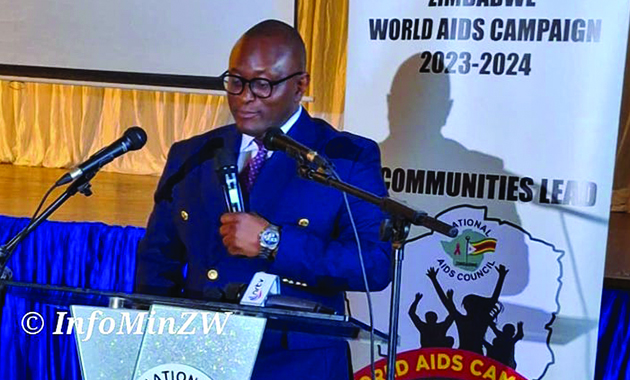Chiefs get marriage officer training

Sukulwenkosi Dube-Matutu, [email protected]
GOVERNMENT will next month start rolling out a training programme for chiefs across the country to enable them to become marriage officers of registered customary law marriages in line with the new Marriages Act.
The new amalgamated and updated Marriages Act was brought into operation in September 2022 by President Mnangagwa, after he confirmed the Parliamentary approval four months earlier.
This was after a protracted debate in Parliament which lasted for almost two years, particularly on payment of lobola in a customary marriage.
The Ministry of Justice, Legal and Parliamentary Affairs, and the Land Development Commission are conducting awareness meetings across the country to unpack the new Marriages Act Chapter 5:17 and to rectify misconceptions.
According to the new Act, magistrates shall be marriage officers for the districts in which they hold office.
Chiefs have been elevated to being marriage officers for customary marriages in their districts while ministers of religion can still be appointed honorary marriage officers for civil marriages.
Traditional leaders will have to go through training in solemnising customary marriages.
According to the Act, they were supposed to have undergone training four months after the new law came into effect.
Addressing stakeholders during an awareness meeting in Gwanda on Tuesday, the acting deputy chairperson for the Land Development Commission, Mr Rex Shana said some chiefs will be trained from March 20 to 22 in Bulawayo while others will be trained in their districts.
“The chiefs will be marriage officers only for registered customary marriages. Ever since the Act came into being the chiefs haven’t been trained and therefore, they haven’t been issued certificates,” he said.
“Chiefs are going to gather on 20 March in Bulawayo.
“On that day we will launch the training programme for the chiefs so that they may start receiving their certificates.”
Mr Shana said the training will cover their responsibilities, and set guidelines and laws in marriage.
“There are also other issues and you will find that under registered customary law marriage it’s a requirement that the marriage officer ensures that there is either payment or part payment of lobola or an agreement that the lobola will be paid,” he said.
Mr Shana said chiefs have to be equipped to ensure that they follow the rules and regulations.
“As the Law Development Commission, we are unpacking the new Marriages Act in all provinces to ensure people are well informed about this critical legal instrument,” he said.
“Communities should be aware that the Act now says within three months of entering into an unregistered customary law union the parties involved have to register it either with the chief or magistrate so that it becomes a registered customary law marriage.”
Mr Shana said under a registered customary law marriage when things go wrong after many years of staying together and acquiring property the law will ensure that both parties are fairly treated unlike in the past when women would lose out.
“That’s the reason why we have particularly picked this law to go around the country so that we can unpack it and respond to any questions.
“The family unit is the most foundational and fundamental in society and it causes a lot of problems if people don’t understand or don’t know what the laws on the family unit entail,” he said.
The Act provides that any property or assets acquired during the partnership will be distributed in the same way that property is distributed when a married couple divorces, using the same law.
Under-age marriages and forced marriages will see those involved, except the child or the forced partner, facing criminal charges. — @DubeMatutu












Comments